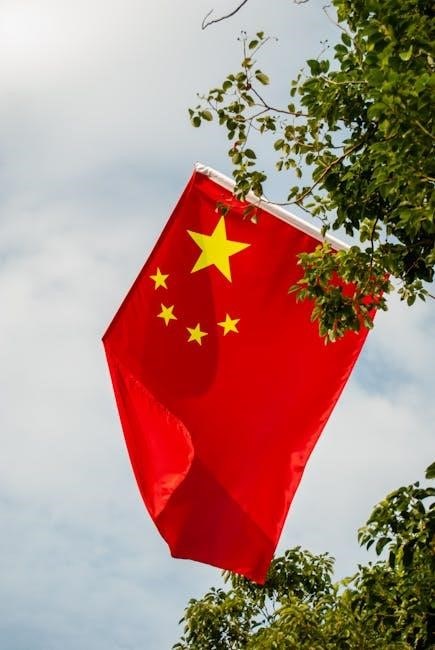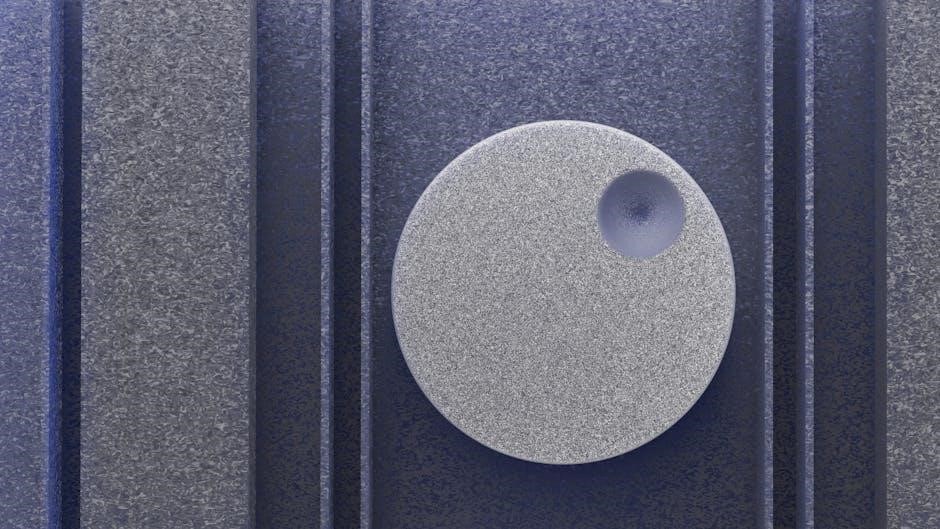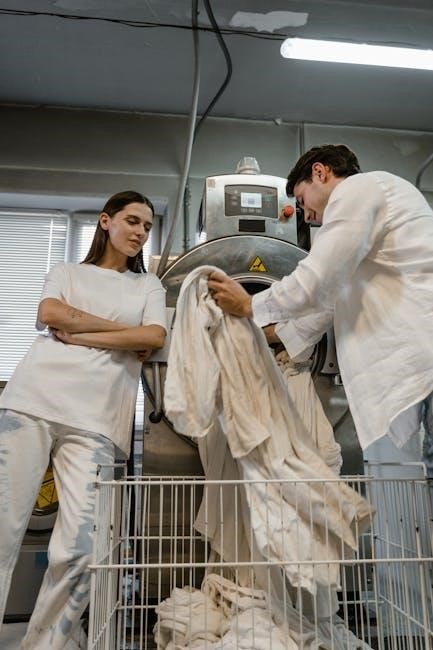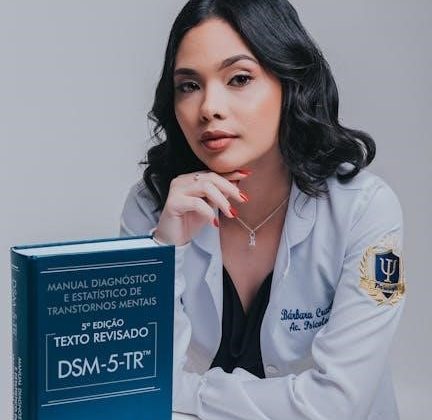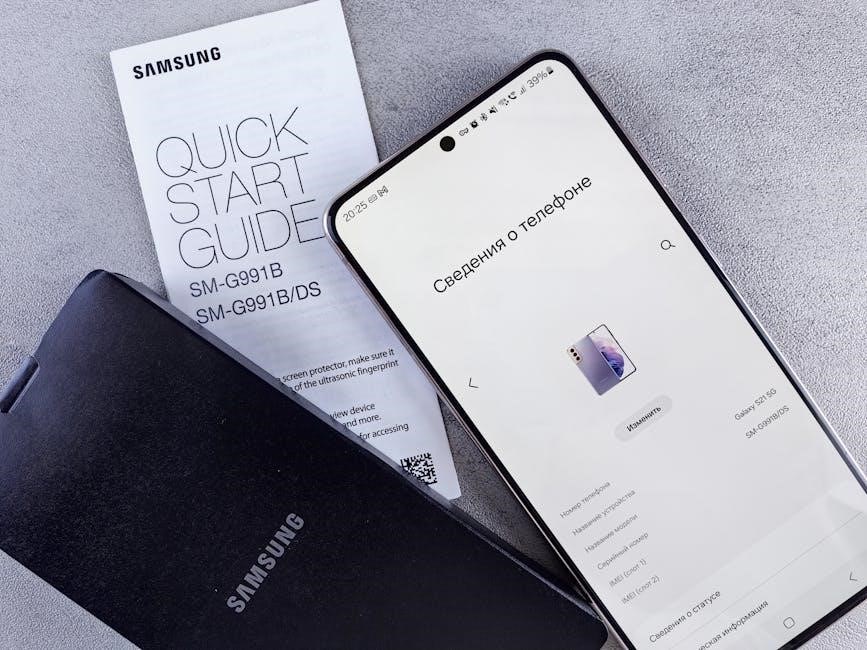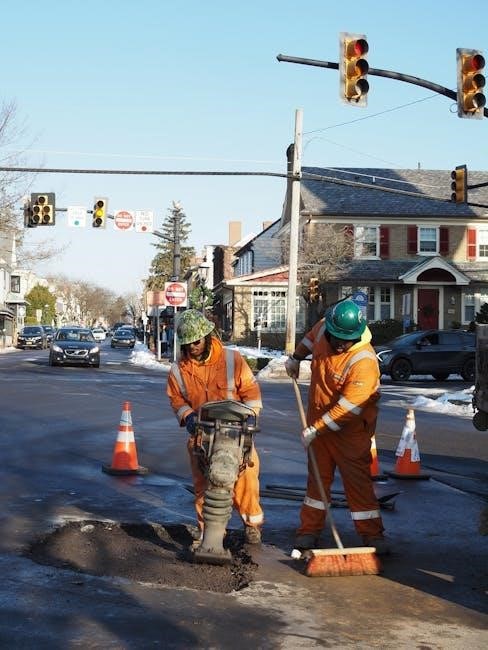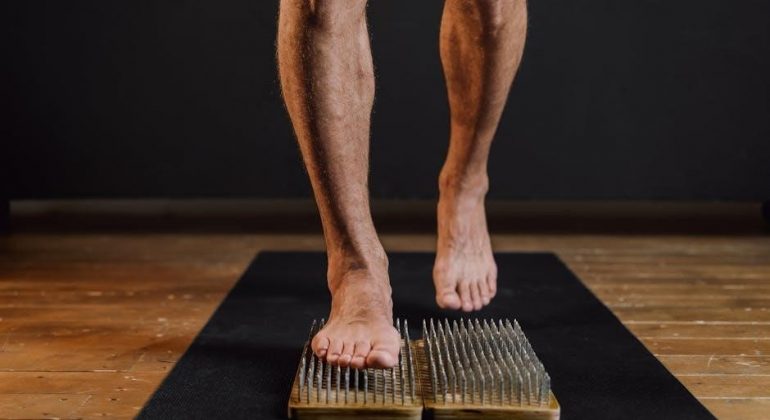khadgamala stotram in telugu pdf
Khadgamala Stotram, a powerful hymn dedicated to the Divine Mother, is readily available in Telugu PDF formats for devotees. Numerous websites offer downloadable versions, ranging from concise 5-page documents to more extensive compilations.
These Telugu resources facilitate recitation and understanding of this sacred text, often including transliteration and translations alongside the original script.
What is Khadgamala Stotram?
Khadgamala Stotram is a hymn consisting of verses describing the Goddess as a fierce warrior, wielding a sword – hence the name “Khadgamala” (garland of swords).
In Telugu tradition, it’s a significant text for devotees of Sri Lalita Tripurasundari. PDF versions allow easy access to the stotram’s verses, including the Shri Chakra Devata Mantra and Hreekara Sanagarbhita sequences, aiding in focused recitation and spiritual practice.
Significance in Telugu Tradition
The Khadgamala Stotram holds a revered position within Telugu-speaking communities devoted to Shaktism. Easily accessible PDF versions promote widespread recitation and study of this potent hymn.
Its verses, often found alongside texts like Anagha Vratam, are believed to bestow protection and fulfill desires. The availability of Telugu PDFs ensures preservation and continued practice of this vital spiritual tradition.
Origins and Historical Context
While origins are rooted in Sanskrit tradition, the Khadgamala Stotram’s accessibility in Telugu PDF format demonstrates its enduring relevance and adaptation within the region.
The Author and Lineage
Attribution of the Khadgamala Stotram’s authorship remains somewhat obscure, though it’s deeply connected to the Sri Vidya tradition. The availability of Telugu PDF versions doesn’t explicitly detail the author’s lineage. However, these digital texts preserve the stotram’s transmission across generations of practitioners within the Telugu-speaking community.
The focus within these PDFs is on the stotram itself, rather than biographical details, emphasizing devotional practice over historical specifics.
Connection to Sri Vidya Tradition
The Khadgamala Stotram is intrinsically linked to the Sri Vidya tradition, a tantric tradition focused on the worship of the Divine Mother, Lalita Tripura Sundari. Telugu PDF versions of the stotram often reflect this connection through included mantras and yantras.
These PDFs serve as a vehicle for Sri Vidya practitioners within the Telugu community to access and engage with this potent text, furthering their spiritual practice.

The Structure of Khadgamala Stotram
Khadgamala Stotram consists of verses organized around bija mantras and nyasas, detailed in available Telugu PDF versions for structured recitation.
These PDFs aid understanding of the stotram’s components and proper practice.
Number of Verses and Organization
Khadgamala Stotram typically comprises verses, often found complete within Telugu PDF documents available online. These PDFs present the stotram’s verses sequentially, facilitating a smooth recitation experience.
The organization often includes preliminary sections like dhyana shlokas (meditation verses) and nyasa procedures, clearly delineated within the Telugu PDF format, guiding practitioners through the stotram’s structure.
Key Components: Bija Mantras and Nyasas
Telugu PDF versions of Khadgamala Stotram frequently detail the crucial role of bija mantras – seed sounds – and nyasas, ritualistic placements of consciousness. These elements are integral to the stotram’s efficacy.
The PDFs often explicitly outline the shat-karna nyasa, a six-part placement, and the pancha-nyasa, a five-part placement, providing clear instructions for correct practice within the Telugu text.
Availability of Telugu PDF Versions
Numerous online platforms host Khadgamala Stotram in Telugu PDF format, including Stotranidhi and various eBook repositories, offering easy access for devotees.
Popular Websites for Download
Several websites specialize in providing religious texts in Telugu PDF format. Stotranidhi is a prominent resource, offering Sri Devi Khadgamala Stotram alongside other stotras. Additionally, general eBook download sites often archive these PDFs.
Devotees can also find versions on platforms hosting religious literature, and occasionally, direct links are shared within online forums dedicated to spiritual practices. Checking multiple sources ensures access to different versions.
Variations in PDF Formats (Text, Images)
Khadgamala Stotram Telugu PDF versions exhibit format variations. Some PDFs are text-based, allowing for easy copying and searching, while others are image scans of printed texts. Image-based PDFs preserve original formatting but lack text selection capabilities.
Larger file sizes often indicate higher resolution scans. Some versions include transliteration, while others present only the Telugu script. Choosing depends on individual preference and study needs.

Understanding the Telugu Text
Telugu PDFs of Khadgamala Stotram often include transliteration to aid pronunciation. Key terms like “Shree Chakra Devata” require understanding for proper recitation and devotion.
Transliteration and Pronunciation
Telugu PDFs frequently present Khadgamala Stotram with Roman transliteration, assisting those unfamiliar with the script. Accurate pronunciation is vital; for example, “Shree” and “Khadgamala” require careful articulation.
Devotees should consult audio resources alongside the PDF to grasp the correct sounds. The hymn’s power is amplified through precise and reverent chanting, honoring the Divine Mother.
Meaning of Key Terms and Phrases
Telugu Khadgamala Stotram PDF versions often include explanations of crucial terms like “Bija Mantras” (seed syllables) and “Nyasas” (ritualistic placements). Understanding phrases like “Shadanganayas” – six limbs – is essential for proper practice.
Decoding these elements unlocks deeper layers of meaning, revealing the hymn’s potent symbolism and connection to Sri Vidya tradition, enhancing devotional understanding.

Benefits of Reciting Khadgamala Stotram
Reciting Khadgamala Stotram, accessible through Telugu PDFs, offers spiritual upliftment, protection from negativity, and the removal of obstacles in life’s journey.
Spiritual Benefits
Accessing Khadgamala Stotram in Telugu PDF format allows for deeper spiritual connection. Regular recitation, guided by these readily available texts, fosters inner peace and heightened awareness.
Devotees report increased devotion, clarity of mind, and a stronger link to the Divine Mother’s energy. The stotram’s potent verses, when chanted, purify the subtle body and accelerate spiritual progress, offering profound transformative benefits.
Protection and Removal of Obstacles
The Khadgamala Stotram, accessible through Telugu PDF downloads, is believed to offer potent protection against negative energies and obstacles. Recitation creates a shield, dissolving fears and anxieties.
Devotees utilize these texts to invoke the Goddess’s power, clearing pathways to success and well-being. The stotram’s verses are considered highly effective in neutralizing harmful influences and promoting a harmonious life.

Performing Khadgamala Stotram Puja
Telugu PDF versions of Khadgamala Stotram often detail puja procedures, outlining required materials and step-by-step instructions for a dedicated worship ritual.
These guides aid devotees in performing the puja correctly, enhancing its spiritual benefits and invoking the Goddess’s blessings.
Required Materials
Telugu PDF guides for Khadgamala Stotram puja typically list essential items. These include a picture or idol of the Goddess, incense sticks (agarbatti), a lamp (deepam) with oil or ghee, flowers, fruits, and sweets for offering (naivedyam).
Additionally, a kalasha (pot filled with water and topped with mango leaves and a coconut) is often recommended, along with red sandalwood paste (raktachandan) and turmeric powder (pasupu) for application. A clean space and comfortable seating are also vital.
Step-by-Step Puja Procedure
Telugu PDF guides detail a specific puja sequence. Begin with Shuddhi (purification), followed by Dhyana (meditation on the Goddess). Offer flowers, incense, and lamp lighting. Recite the Khadgamala Stotram with devotion, focusing on correct pronunciation as per the Telugu text.
Conclude with Arati (waving of the lamp) and distribution of prasadam (blessed offerings). Many guides emphasize the importance of Shadanga Nyasa before recitation.
The Role of Devi in Khadgamala Stotram
Telugu PDF versions depict Devi as fierce and benevolent, wielding weapons and adorned with splendor. She embodies power, knowledge, and liberation, central to the stotram’s essence.
Depiction of the Goddess
Telugu PDF renditions of the Khadgamala Stotram vividly portray the Goddess as a radiant, multi-armed figure. Descriptions detail her fiery eyes, adorned with a jeweled crown, and wielding various weapons like the sword and book.
The text, often found within these PDFs, emphasizes her captivating beauty and formidable power, seated upon a throne, embodying both creation and destruction. Her depiction inspires devotion and fearlessness.
Her Powers and Attributes
Telugu PDF versions of the Khadgamala Stotram highlight the Goddess’s immense powers, including her ability to grant wishes and remove obstacles. She is described as the embodiment of Shakti, possessing the power of creation, preservation, and dissolution.
Attributes detailed in these texts include her role as the destroyer of evil and protector of devotees, often linked to the Bija Mantras and Nyasas found within the stotram itself.

Comparison with Other Stotras
Telugu PDF resources show Khadgamala Stotram shares themes with Durga Stotram, yet differs from Lalita Sahasranamam in its focused, concise depiction of the Goddess’s power.
Similarities with Durga Stotram
Both Khadgamala Stotram and Durga Stotram, available in Telugu PDF versions, powerfully invoke the Divine Mother’s fierce energy. They share a common thread of seeking protection and victory over obstacles.
Telugu devotees often find parallels in the devotional intensity and the emphasis on the Goddess as a warrior, readily accessible through downloadable PDF texts. Both stotras aim for spiritual upliftment.
Differences from Lalita Sahasranamam
While both Khadgamala Stotram and Lalita Sahasranamam are revered in Telugu tradition and available as PDF downloads, they differ in structure and focus. Lalita Sahasranamam is a comprehensive listing of 1000 names, while Khadgamala is a focused hymn.
Telugu PDF versions reveal Khadgamala’s emphasis on the Goddess’s weapon-wielding aspect, offering a more concise and potent invocation compared to the expansive Lalita Sahasranamam.

Common Misconceptions
Many Telugu PDF versions of Khadgamala Stotram vary in authenticity, and correct pronunciation poses challenges for beginners. Careful source verification is crucial.
Authenticity of Different PDFs
Determining the authenticity of various Khadgamala Stotram Telugu PDF files can be difficult, as numerous versions circulate online. Some PDFs may contain transcription errors introduced during digitization or translation.
Devotees should prioritize PDFs sourced from reputable websites dedicated to Vedic literature or those verified by knowledgeable scholars. Comparing multiple versions can help identify discrepancies and ensure accurate recitation of this powerful stotram.
Correct Pronunciation Challenges
Achieving correct pronunciation of the Khadgamala Stotram in Telugu presents challenges, particularly with Sanskrit bija mantras and complex Telugu phonetic structures. Many PDF versions lack pronunciation guides or diacritical markings.
Devotees may benefit from seeking guidance from a knowledgeable guru or utilizing audio recordings alongside the text to ensure accurate articulation and maximize the stotram’s efficacy.

Advanced Practices and Sadhana
Beyond basic recitation, Telugu PDF resources hint at related kavacha practices and the importance of guru initiation for deeper Khadgamala Stotram sadhana.
Kavacha and Other Related Practices
Telugu PDF versions of Khadgamala Stotram often allude to the creation of a protective kavacha – an amulet or talisman – through dedicated practice. This involves specific rituals and mantra repetition detailed within associated texts.
Further sadhana may include nyasas (ritualistic touch) and visualization techniques, enhancing the stotram’s power. These advanced practices, though hinted at in downloadable resources, ideally require guidance from a qualified guru for safe and effective implementation.
Initiation and Guru Guidance
While Telugu PDF versions provide access to the Khadgamala Stotram, true mastery often necessitates initiation from a qualified guru within the Sri Vidya lineage. Authentic transmission ensures correct pronunciation and understanding of subtle energies.
Self-study, though valuable, may not unlock the stotram’s full potential. Guru guidance safeguards practitioners from misinterpretations and facilitates deeper spiritual progress, especially concerning advanced sadhana.
Resources for Further Study
Online forums and communities dedicated to Sri Vidya offer discussions on Khadgamala Stotram. Telugu eBooks and PDFs from sites like Stotranidhi provide deeper insights.
Online Forums and Communities
Several online platforms foster discussions surrounding the Khadgamala Stotram, particularly concerning its Telugu interpretations and PDF availability. Dedicated Sri Vidya forums often host threads where practitioners share resources, clarify doubts regarding pronunciation, and exchange experiences with recitation.
These communities are invaluable for those seeking guidance on understanding the nuances of the stotram, locating reliable PDF versions, and connecting with fellow devotees. Social media groups also provide a space for collaborative learning.
Books and Scholarly Articles
While dedicated books specifically focusing on Khadgamala Stotram in Telugu are less common, broader texts on Sri Vidya and Shakta Tantra often include sections dedicated to it. Scholarly articles exploring the stotram’s origins, structure, and philosophical underpinnings may offer deeper insights.
Searching academic databases and specialized publishers can reveal relevant research. Examining commentaries on related texts like Lalita Sahasranamam can also illuminate the context of the Khadgamala Stotram and its PDF translations.
Troubleshooting PDF Issues
Telugu Khadgamala Stotram PDF viewers may encounter font encoding problems or compatibility issues across devices. Updating your reader or trying a different browser often resolves these.
Font Encoding Problems
Telugu Khadgamala Stotram PDFs frequently present font challenges, displaying incorrect characters or garbled text due to encoding mismatches. This occurs when the PDF’s font isn’t properly recognized by your viewer.
Solutions include updating your PDF reader (Adobe Acrobat, Foxit Reader), changing viewer settings to support Telugu fonts, or converting the PDF to a different format. Ensure your system has appropriate Telugu language packs installed.
Compatibility with Different Devices
Khadgamala Stotram Telugu PDFs may render differently across devices – smartphones, tablets, and computers. Formatting inconsistencies, like misplaced text or font size issues, are common.
Optimized PDFs designed for mobile viewing often provide a better experience. Utilizing cloud storage or dedicated e-reader apps can improve consistency. Consider converting to a more universally compatible format if problems persist.

The Importance of Faith and Devotion
Reciting the Khadgamala Stotram, even from a Telugu PDF, gains potency through sincere bhakti and focused intention. Devotion amplifies spiritual benefits.
The Role of Bhakti
Bhakti, or devotion, is paramount when engaging with the Khadgamala Stotram, even when utilizing a Telugu PDF version. The power isn’t solely in the words, but in the heartfelt offering.
Sincere devotion transcends linguistic understanding, allowing a deeper connection with the Divine Mother. Recitation becomes a loving exchange, amplifying the stotram’s protective and transformative energies. A Telugu PDF serves as a tool, but bhakti fuels the practice.
Proper Intention During Recitation
When utilizing a Telugu PDF of the Khadgamala Stotram, setting a clear intention is crucial. Recitation should be approached not merely as a linguistic exercise, but as a focused spiritual practice.
Whether seeking protection, obstacle removal, or spiritual growth, a defined purpose amplifies the stotram’s efficacy. This focused intention, combined with devotion, transforms the PDF into a powerful conduit for divine grace.

Future Trends in Digital Accessibility
Expect mobile apps and interactive platforms offering Khadgamala Stotram in Telugu PDF format, enhancing learning with audio, translations, and personalized recitation features.
Mobile Apps for Khadgamala Stotram
Dedicated mobile applications are emerging to provide convenient access to the Khadgamala Stotram in Telugu PDF and other formats. These apps will likely feature synchronized audio recitation, allowing users to follow along with the Telugu text.
Interactive features, such as highlighting verses and bookmarking favorite sections, will enhance the learning experience. Offline access to downloaded PDF versions will also be a key benefit for devotees.
Interactive Learning Platforms
Online platforms are beginning to offer interactive learning experiences centered around the Khadgamala Stotram, including Telugu PDF resources. These platforms may incorporate features like verse-by-verse explanations, pronunciation guides, and quizzes to aid comprehension.
Community forums will allow users to discuss the stotram and share insights, fostering a collaborative learning environment. Access to Telugu translations and transliterations will be crucial.



